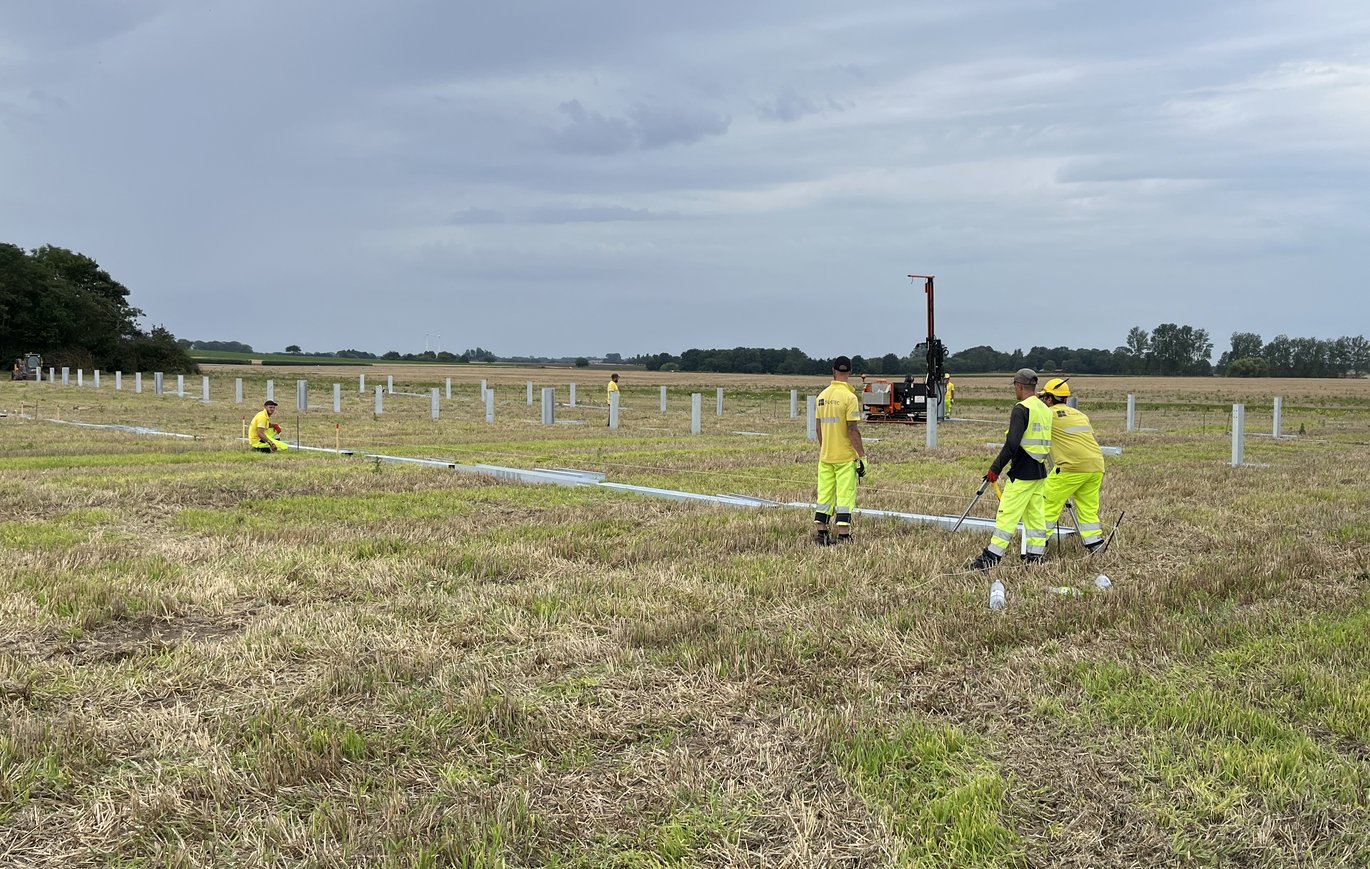The sun shines on AU Flakkebjerg
Construction of a new AgriPhotoVoltaic facility at AU Flakkebjerg has commenced last week. Once the experimental installation is completed, it will comprise 1512 solar panels and cover approximately 2 hectares.

The Agrivolt project is a fusion of energy production, agriculture, and cutting-edge technology, offering potential contributions to various aspects of sustainability, including biodiversity.
At AU Flakkebjerg, near Slagelse, the construction of a new AgriPhotoVoltaic facility has just begun. It's part of the Agrivolt project, a collaboration where energy production, agriculture, and advanced technology are merged, and their potential is explored by project partners European Energy, Aarhus University, University of Copenhagen, and Slagelse Municipality.
"From the municipality's perspective, we support Flakkebjerg and the research taking place through the collaboration agreement we have entered into. I pass by every day and therefore follow the construction with great interest. We need more green energy, and I look forward to seeing the results that come out of the project and how they can help address some of the challenges involved in combining agriculture and solar panels in the same fields," says Mayor of Slagelse Knud Vincents.
2 hectares of solar energy
The core of the AgriPhotoVoltaic facility is its 1512 solar panels. Each individual solar panel has a capacity of 650 watts peak (Wp), resulting in a total amount of 0.98 megawatts direct current (dc). This is equivalent to the facility being able to produce 1 million kWh annually, sufficient to cover the energy consumption of at least 200 households.
Cultivating solar energy and agriculture on the same area
The difference between an AgriPhotoVoltaic system and a traditional solar park is that in the Agrivolt system, the space between the panels will also be used for cultivation. There is a distance of 12 meters between each panel, providing ample room for growing agricultural crops, even though they will be shaded, and there's enough space for agricultural machinery without collisions with the panels.
In addition to crops, the researchers behind Agrivolt plan to cultivate flower strips and implement similar biodiversity initiatives.
While there's space for traditional agricultural machinery between the solar panels in the facility, the researchers' plan is for the soil to be tended to by self-driving robots.
"When you combine agriculture and automation with self-driving robots, it not only reduces working hours but also paves the way for more sustainable and efficient crop cultivation," explains Associate Professor Johannes Ravn Jørgensen from the Department of Agroecology at Aarhus University.
Construction has begun
The construction is underway, and the new facility, which has the potential to maintain food production while ensuring renewable energy production, is starting to take shape.
"We will investigate the benefits of producing renewable energy and food on the same area, intensive use of field robots, increased biodiversity, the technical and economic viability of the system, as well as explore farmers' and the surrounding community's attitudes towards and acceptance of such a system," Johannes Ravn Jørgensen explains.
European Energy is responsible for the construction of the experimental facility, and the expectation is that the construction will be completed by October 1.
"The solar panels in the experimental facility are the same solar panels we normally use in our commercial solar parks. As a result, we can gain valuable insights into how we can integrate these findings into commercial projects in the future," says Mads Lykke Andersen, Head of Technology Development at European Energy.
More information | |
| Collaborators | Aarhus University, European Energy, Copenhagen University and Slagelse Municipality |
| Funding | Innovation Fund Denmark |
| Grant | 22,8 mio DKK |
| Contact | Associate Professor Johannes Ravn Jørgensen, Department of Agroecology, Aarhus University. Tel.: 87158314 or mail: jrj@agro.au.dk |
